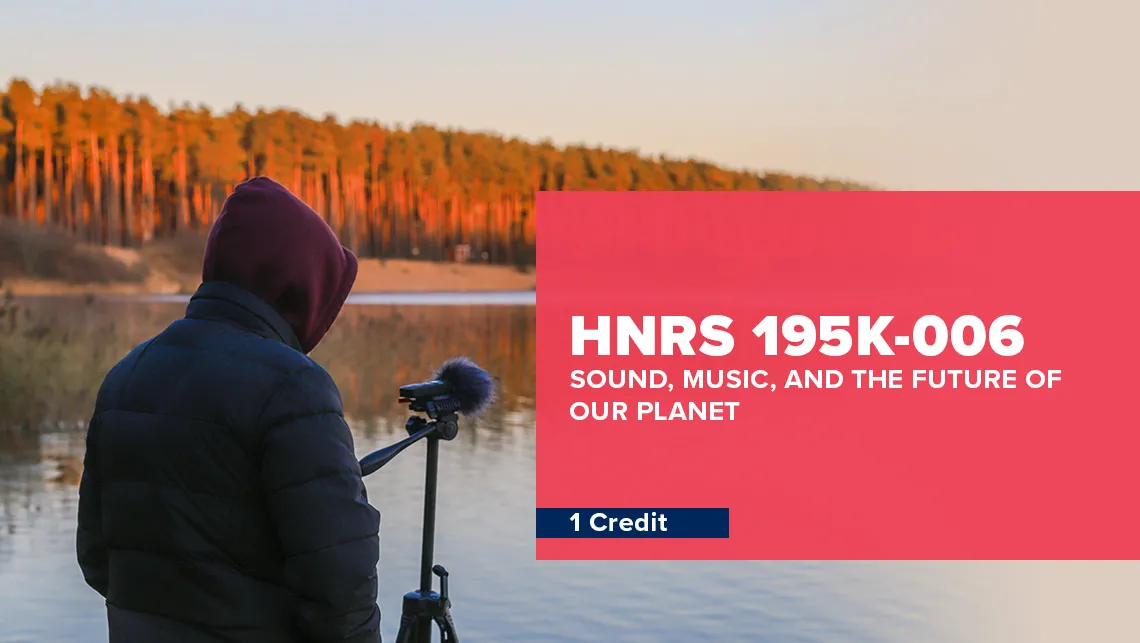

Instructor: Jennifer Post
Wed | 10:00 AM - 10:50 AM | Hybrid/Flex In-Person
Understanding the significance of sounds, soundscapes, and music in connection with lands and lifeways is critical to the future of our planet. Sonic practices of humans and nonhumans powerfully carry knowledge, communicate change, and support health and well-being. Songs, tunes, and sound signals, bird calls, animal cries, wind and water sounds, and sounds of technology, all offer information about the environment for careful listeners and are powerful means for communicating about needs for action during this period of environmental change. We will read about sounds and soundscapes in works by ecologists, biologists, eco musicologists, anthropologists, and geographers; we will listen to recordings and explore local sound worlds as active listeners to gain a better understanding of the meaning of listening and to experience approaches to the study of sound. As we read, view, and listen to case studies about sonic practices in different locations and explore local sounds, we will discuss how we can more effectively use our knowledge about this important sensory tool to address biodiversity, sustainability, and resilience. We will also consider why studying sound across the disciplines (encompassing the sciences, social sciences, humanities, and arts) is essential if we are to work together to address needs for change.

